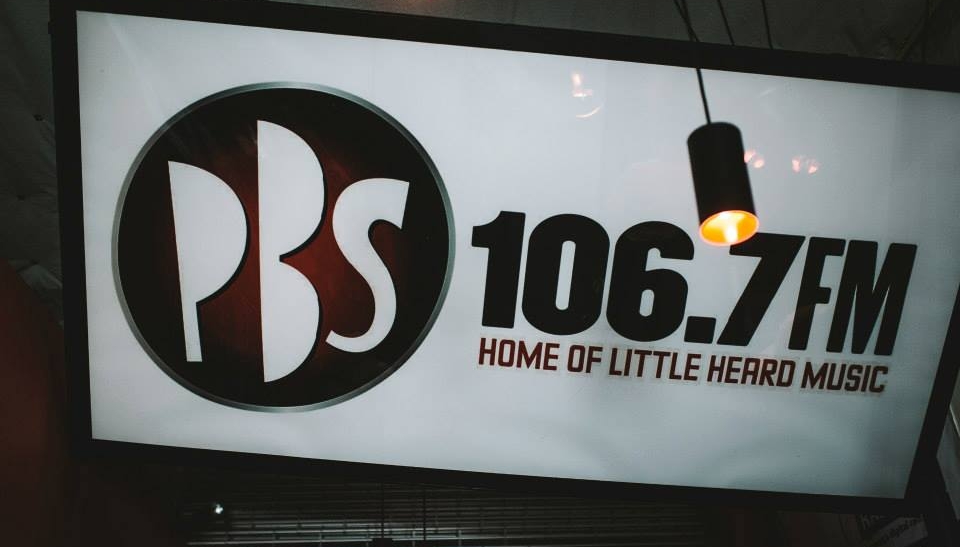“I’m in a weightlifting gym in Gothenburg,” he informs me. “I joined a little community of Olympic weightlifters, so in comparison I’m not very good, but I’m ambitious. You should always shoot for the moon, and if you don’t make it, well, there’s always the Olympics.”
Bodin’s phone demeanour can only be described as ‘bubbly.’ He is excitable and quick to laugh about the band’s foibles, which, for a group closing in on its 20th anniversary, is rather refreshing. There is nothing tired or jaded in his outlook on Little Dragon’s success abroad (quite strong) or at home (much more restrained). Similarly, tensions within the band seem to have carved an easy groove over time.
“Well, it’s taken years,” he exclaims. “We all work on finding ways of giving criticism with love, and go straight to the point rather than go through this boring, roundabout way because you’re afraid of stepping on toes. But I think we’re all grown up enough now that we can be very straight with each other without being arrogant. That’s the trick. It takes trust. But collaborating with people who aren’t in the band, that’s where you have to be careful from the beginning. There’s nothing worse than being polite from the very start and find yourself agreeing to something that nobody likes.”
Little Dragon’s fourth album, Nabuma Rubberband, features several notable collaborations including Robin Hannibal and David ‘Trugoy’ Jolicoeur of De La Soul, so the chances of producing dud tracks out of politeness were fairly slim. Impressively, the Grammy Awards clearly agree, nominating the release for Best Dance/Electronic Album. It’s quite an achievement for a band yet to really take off in its native Sweden.
“I remember one of the first shows we did at home,” Bodin recalls, and breaks off laughing. “And the reviewer really murdered us. She was so negative. I remember almost looking up her number to call and say, ‘What the fuck, lady?’ That didn’t happen, thankfully. It’s a nice thing to go out and do all these shows, tour around and then step back to a normal life in Sweden. But we’re growing very, very slowly here as well. We’re nominated as one of the bands of the year on the radio, but I don’t think we’re going to get it. We’re up against Robyn, First Aid Kit, some of the big names. And we’re not really big in Sweden. We’re big in America, but at home we’ve got a way to go. We never really stressed about making it big here, though. We’re a little nation, nine million people. If they don’t like us, well, we can always go elsewhere.”
With such a small population, it’s nice to imagine Sweden as place full of musical overlap, with songwriters and musicians high-fiving each other as they wander down the street, streaming in conga lines from venue to venue. But then you remember, of course, that Sweden is a land of ice, snow, and, presumably, yetis.
“We try and spend time with other bands we know here in Gothenburg. Bands like The Knife, José González, [and] Studio. It’s typical of living in Sweden though that, well, in summer things are good, you’re outside. But it’s such a short summer, and in winter we hibernate. It’s very productive; we’re high on coffee all the time, making tunes. So there’s just not much time for hanging around. If we’re lucky we might go out and grab a beer.”
The hibernation has certainly paid off, and the album includes several stand-out tracks – Klapp Klapp and Pretty Girls are both strong and feature a fantastic set of related videos. The entire album, in fact, features a connectedness from song to song that is partly inevitable, and partly by design.
“When you’re in a songwriting period, they’re all siblings. Some have strong personalities, and really stick out. You might love that song, but it might be too schizophrenic somehow, it might sound out of place. We write so many, but you feel quite instantly which songs are related to each other. I don’t know what that is exactly, other than it’s something that we all just happen to like. With so much writing, that’s the first challenge, finding those songs that everyone likes. But on this album they all feel related, and we’re happy with them.”
Before I return to peacock-wrangling and Bodin hits the weights, I wonder how comfortably the band sits with the name Little Dragon after all this time; if it is still meaningful, and if there were ever any other contenders.
“Yellow Danger,” he replies instantly. “It’s a name, and also a bit of a safety message here in Sweden. But we’ve been Little Dragon so long. It’s a difficult question. Of course, you could change it, it’s just a name after all, [and] it doesn’t really say anything. It’s just two empty words. They mean something, but what we’re doing is so much bigger than a name. Musically, emotionally. There’s always things you want to change at different times, but we’re mostly settled with the past.”
BY ADAM NORRIS







